With You on the “Epidemic” Road | 3D Dissolvable Porous Microcarrier for Virus Production (II): Cell Expansion
- Categories:Company News
- Author:
- Origin:
- Time of issue:2022-03-16
- Views:0
(Summary description)Inthepreviousarticle,wediscussedthatintheproductionofviralbiologicalproducts,thesuspensioncultureofadherentcellswascarriedoutbyusingCytoNichemicrocarrier(Vseries)combinedwithbioreactor,andthedetailsca
With You on the “Epidemic” Road | 3D Dissolvable Porous Microcarrier for Virus Production (II): Cell Expansion
(Summary description)Inthepreviousarticle,wediscussedthatintheproductionofviralbiologicalproducts,thesuspensioncultureofadherentcellswascarriedoutbyusingCytoNichemicrocarrier(Vseries)combinedwithbioreactor,andthedetailsca
- Categories:Company News
- Author:
- Origin:
- Time of issue:2022-03-16
- Views:0
In the previous article, we discussed that in the production of viral biological products, the suspension culture of adherent cells was carried out by using CytoNiche microcarrier (V series) combined with bioreactor, and the details can be viewed directly from the following article links.
Next, we will discuss the specific performance of Vero cells (African green monkey kidney cells), MDCK cells (dog-renal epithelial cells) and human diploid cells in the use of CytoNiche microcarrier (V series).
【Vero Cells (African Green Monkey Kidney Cells)】
Vero cells are anchorage-dependent aneuploid cells isolated from the kidney of African green monkeys in 1962. In 1987, the World Health Organization (WHO) officially approved the continuous cell line as the raw material for the production of biological products. Since then, Vero cells have gradually been approved for the production of human vaccines, such as inactivated poliovirus vaccine, oral poliovirus vaccine, and rabies virus vaccine. Since the outbreak of COVID-19 in early 2020, Vero cells have been preferred by many companies around the world for the development and production of the COVID-19 vaccine.
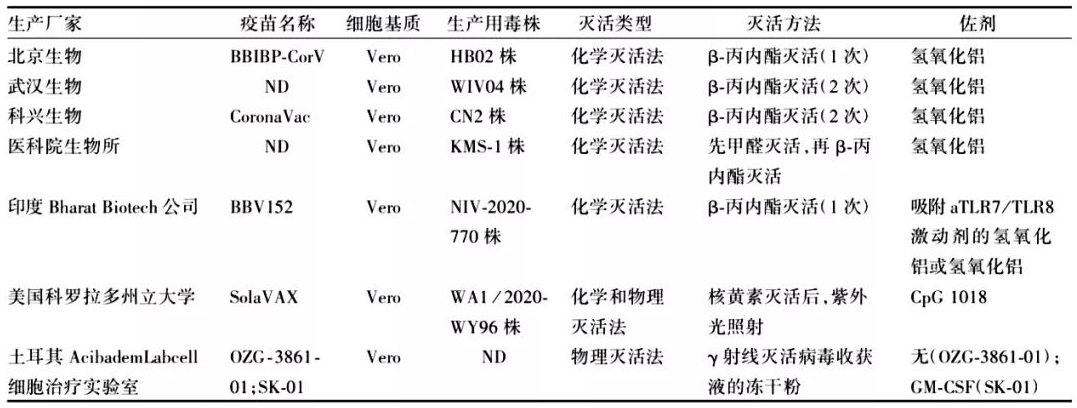
Deng Tao, Nian Xuanxuan, Zhang Jiayou, Huang Shihe, Yang Xiaoming. Development and Application of New Coronary Virus Inactivated Vaccine [J]. Chinese Journal of Biological Laboology, 2021,34 (07): 761-769.
Vero cells have strong attachment ability and are easy to adapt to the microcarrier culture process. CytoNiche microcarrier enables continuous scale-up subculture of Vero cells in a multi-stage reactor, and the peak cell density can reach 1×107/mL. It is easy to achieve process scale-up.
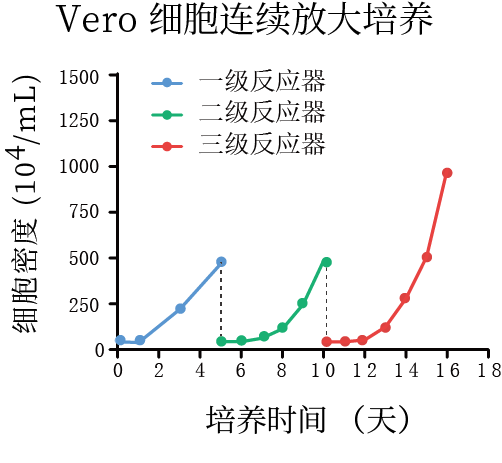
Comparison of Vero cell growth on CytoNiche microcarrier (left) and traditional spherical microcarrier (right), and the scale is 250 μm.
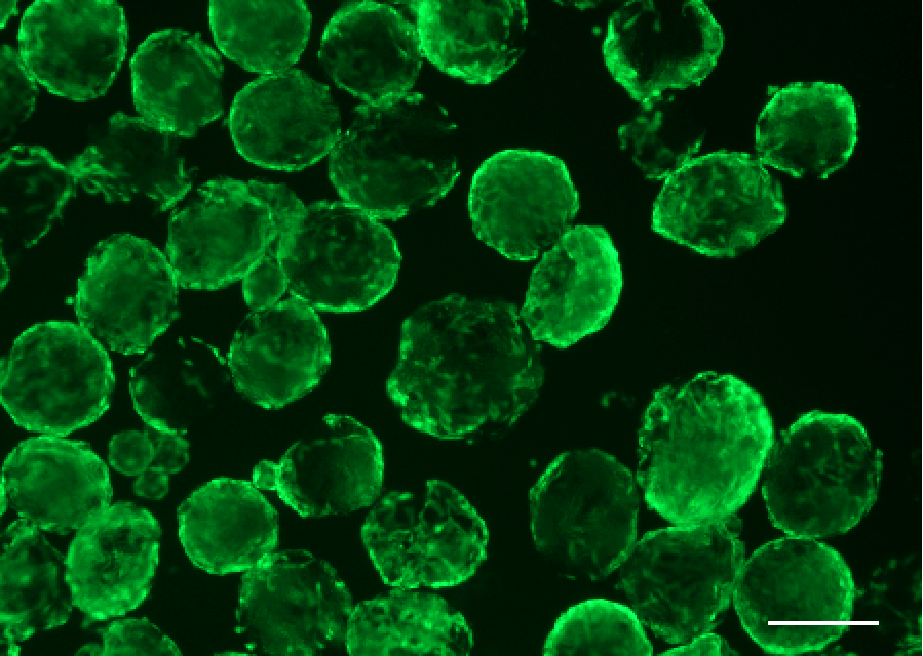
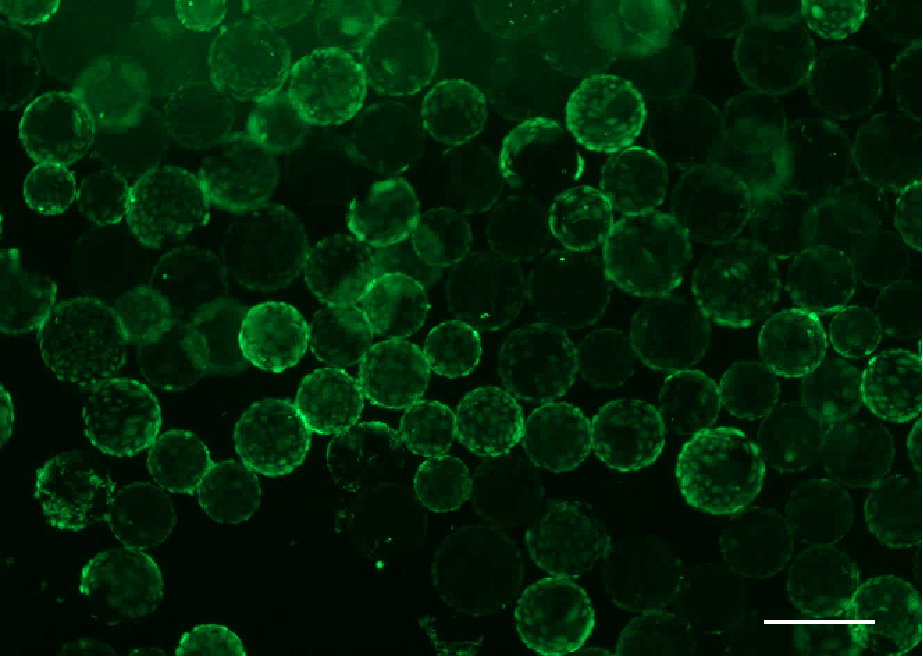
【MDCK Cells (Dog-Renal Epithelial Cells)】
MDCK cells are anchorage-dependent epithelial cells isolated from the kidney of Cocker Spaniel in 1958. Flucelvax® was approved by FDA in 2012, it was the first vaccine derived from cell culture technology in American, replacing the traditional process based on embryonated chicken eggs which used MDCK cells.
CytoNiche microcarrier enables continuous scale-up subculture of MDCK cells in a multi-stage reactor, and the peak cell density can reach 1×107/mL before seeding viruses.
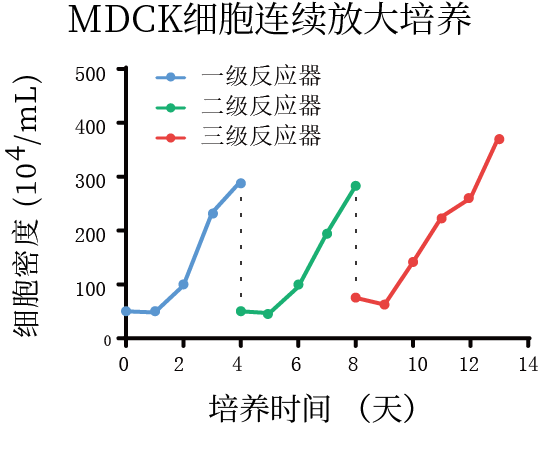
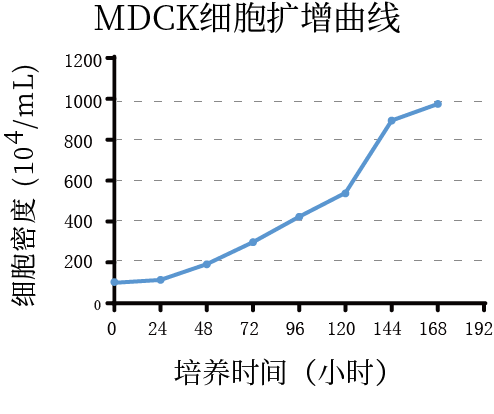
【Human Diploid Cells】
Human diploid cells are primary mesenchymal cells derived from normal human fetal tissue. Compared with animal cells, human diploid cells have no potential carcinogenicity and no animal-derived contaminants. They are ideal raw materials for biological products; However, its long cell doubling time, very limited passage number, which makes it difficult to realize amplification culture and also limits its practical application.
Using CytoNiche microcarriers to culture human diploid cell line, the cell viability and amplification effect are significantly superior to those of traditional microcarriers. When harvesting, the number of cells per gram of microcarrier is 3–4 times that of traditional microcarriers, and the cell density can reach 2×106/mL.
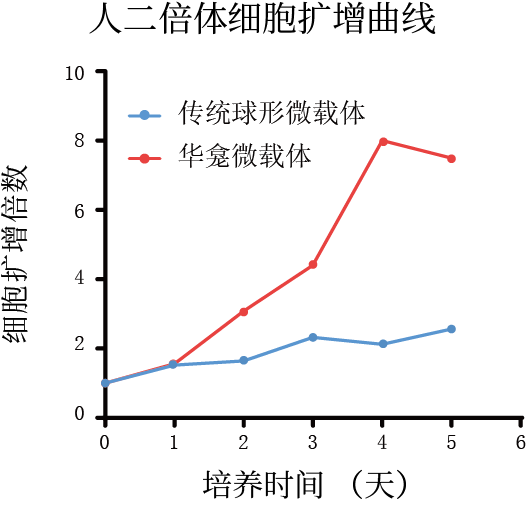
Comparison of Vero cell growth on CytoNiche microcarrier (left) and traditional spherical microcarrier (right), and the scale is 500 μm.
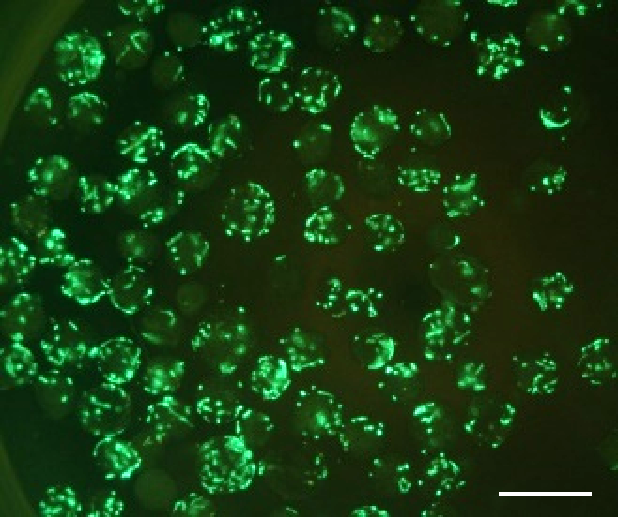
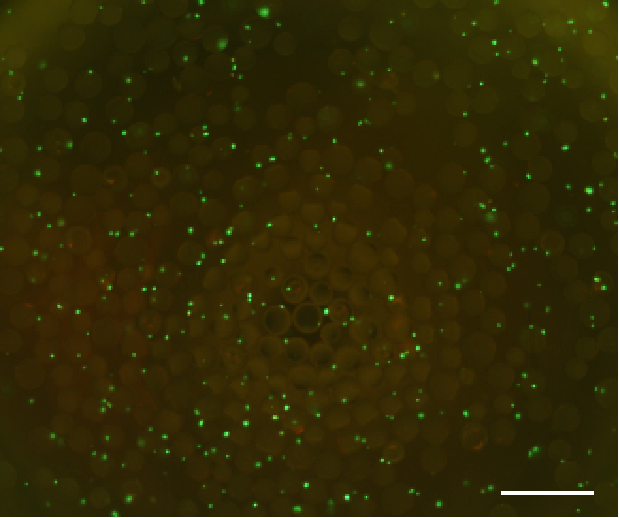
【Conclusion】
CytoNiche microcarrier shows excellent amplification effect in several common adherent cell cultures. Based on such a prominent performance of cell expansion, how about the virus production efficiency in the cells cultured on CytoNiche microcarrier? Please look forward to!

For more details, please fill in the questionnaire and leave your contact information. We will arrange technicians to contact you!
Scan the QR code to read on your phone
-
Phone
- Service hotline+86 400-012-6688
-
E-mail
- E-mailwangal@cytoniche.com
- TOP



 京公网安备 11010802037749号
京公网安备 11010802037749号
